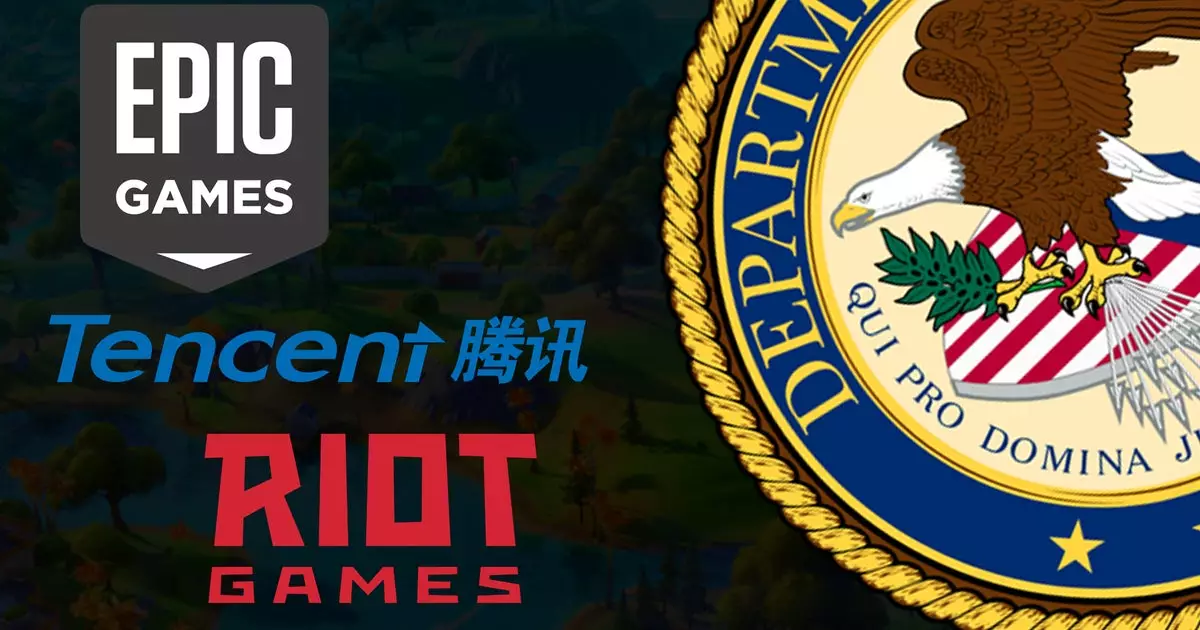The resignation of two board members from Epic Games amidst an investigation by the U.S. Department of Justice (DoJ) highlights critical considerations in the arena of corporate governance and antitrust laws in the tech industry, particularly in the fast-evolving landscape of the video gaming sector. This development poses significant questions about the intersection of corporate oversight, competition, and ethical governance in today’s economy, where the stakes are high and the players are powerful.
The recent scrutiny of Epic Games’ board of directors, which saw the resignation of Ben Feder and David Wallerstein, underscores a fundamental principle embedded in antitrust legislation, specifically the Clayton Act. This statute forbids concurrent board memberships in competing companies to prevent potential confounding of interests that could undermine competition. The two resigned board members, appointed by Tencent—a corporation that possesses a significant stake in Epic Games—were deemed to be in a conflicting position due to Tencent’s ownership of Riot Games.
The antitrust investigation, as detailed in the DoJ’s announcements, relates to Tencent’s extensive influence in the gaming sector. The implications of allowing a Tencent director during pivotal Epic Games decisions could arguably lead to an unfair competitive landscape, akin to juxtaposing executives from direct competitors, such as Pepsi and Coca-Cola, in the same strategic discussions. This controversial intertwining of corporate interests raises questions not only around legality but also about ethical governance practices.
Antitrust laws exist to maintain fair competition and prevent monopolistic behaviors that can detrimentally affect consumers and market dynamics. The DoJ’s actions in this case echo sentiments that have been felt throughout the tech industry, wherein companies like Valve have faced their share of legal challenges concerning antitrust violations as well. These regulations serve as a safeguard against the organic growth of monopolies that can stifle innovation, consumer choice, and economic equitability.
As seen with Microsoft’s prior battles involving its acquisition of Activision Blizzard, regulatory bodies are increasingly vigilant over mergers and structural governance that could potentially consolidate power among few. The enforcement of these laws instigates a larger dialogue about the ethical responsibilities tech companies bear not only in terms of compliance but also in fostering a competitive landscape that encourages creativity and consumer welfare.
In light of these recent events, it is important to analyze the broader implications for both Epic Games and Tencent. The resignations of Feder and Wallerstein—who held notable positions within Tencent—imply a significant adjustment in the corporate governance framework that will likely be under continuous scrutiny. With Tencent agreeing to amend its shareholder agreement, limiting its ability to appoint directors to Epic’s board, signals a pivotal move towards maintaining a more robust ethical commission of competitive integrity in corporate governance.
Moreover, this situation reflects the urgent necessity for companies, particularly in the technology and gaming sectors, to develop clear and transparent governance frameworks that are cognizant of antitrust laws. Proactive measures—such as evaluating board members’ affiliations with competing entities—are not only smart governance but also serve to preemptively address potential scrutiny from regulatory bodies.
As the gaming industry continues to expand with technological advancements and changing consumer preferences, players in this field must navigate the complexities of corporate governance while being acutely aware of antitrust regulations. The resignation of directors at Epic Games following a significant investigation serves as a stark reminder of the critical need for companies to cultivate a culture of ethical governance and transparency.
In forging ahead, it’s essential for industry leaders to embrace a proactive approach to compliance and foster environments that prioritize fair competition. Antitrust laws are not merely restrictions; they serve as essential frameworks designed to safeguard against the excesses of corporate power and to uphold the principles of a vibrant, equitable marketplace. As the epic story of the video game industry unfolds, these themes of ethics, governance, and competition will remain paramount.


Leave a Reply